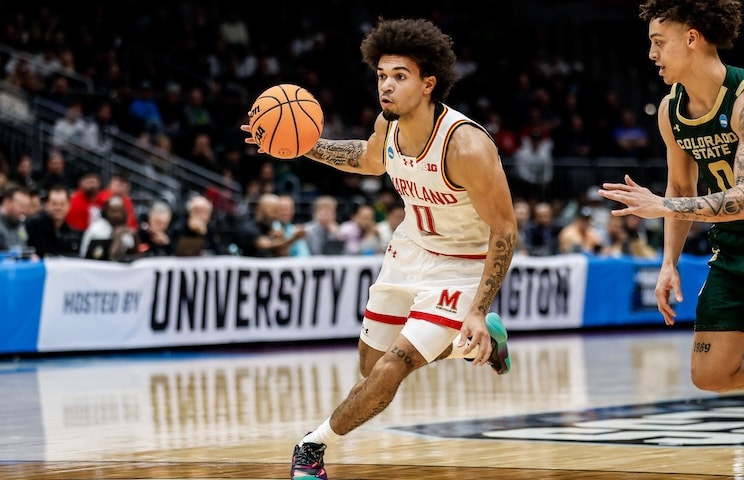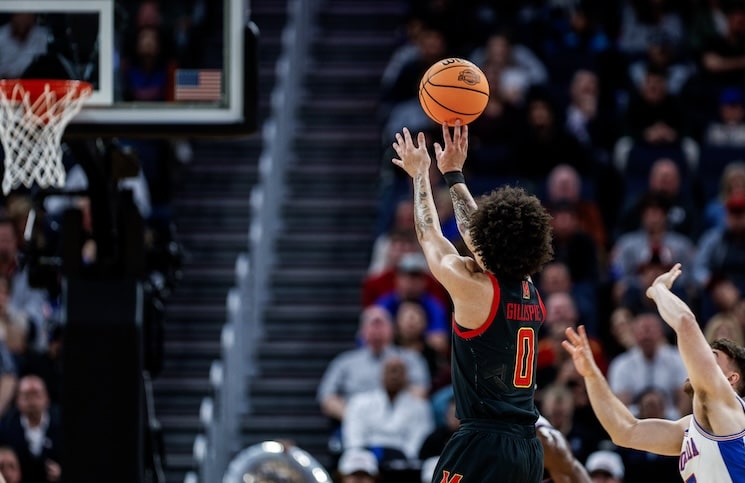
Last week, Tennessee head coach Jeremy Pruitt made the claim that this year’s Vol squad is “100 times better” than last year’s team was at this point in the season. Despite a worse record through four games and suffering one of the worst losses in program history to start the season, Pruitt maintains that this year’s team is actually ahead of last year’s in a lot of areas.
The biggest reason that improvement hasn’t been reflected in the win/loss record according to Pruitt? Turnovers.
“Our football team is 100 times better than it was this time last year. Our guys are working hard. We’re stronger, more physical,” Pruitt said last week. “But when it comes to having success and winning a football game, we can’t turn the ball over, and we have to create turnovers. That’s something that has hampered us in our three losses.”
In that regard, Pruitt is spot-on. The Vols’ turnover issues — and their poor play from the quarterback position — is the main culprit in UT not having a better record right now. In all three of Tennessee’s contests against FBS opponents this season, the Vols have lost the turnover battle. Tennessee has finished with more giveaways than takeaways in each of their three games against FBS foes this year so far.
But that’s not the only area where Tennessee has regressed from last season.
On paper, the Vols are worse in most areas through the first month of the season than they were at this time last year. There are a few areas where Tennessee has shown some improvement, but by and large the Vols are worse statistically than last season so far.
So, does Pruitt’s assertion that his team is “100 times better” than last year hold up under scrutiny? Let’s take a look.
Regression
On offense, Tennessee is actually right on par in scoring points with where they were last season. In their first three games against FBS opponents last season (West Virginia, UTEP, Florida), Tennessee was averaging 19.7 points per game. In the Vols’ first three games against FBS opponents this year (Georgia State, BYU, Florida), Tennessee is, again, averaging 19.7 points a game.
But when it comes to running the ball, overall offensive yardage, turnovers, red zone touchdowns, and yards per play, Tennessee’s offense has taken a step back from last year.
The Vols are averaging nearly 70 fewer rushing yards per game against FBS competition when compared to this point last season. Tennessee was averaging 210 rushing yards a game against their first three FBS opponents in 2018, but they’ve managed just 141 yards a game on the ground this season. That’s a 32.9 percent drop-off. In terms of total offense, the Vols have seen an 8.4 percent total decrease, averaging 359.3 yards a game against FBS teams compared to 392.3 yards in three games last season.
Another slight decline can be found in Tennessee’s overall yards per play on offense. In three games against FBS teams last year, the Vols were averaging 5.58 yards a play. So far this season, the Vols are averaging 5.31 yards a play against FBS opponents.
Tennessee has the same amount of turnovers against FBS foes as they did at this point last season, but it can easily be argued that UT is much worse at taking care of the football this year than last year right now. Six of the Vols’ eight turnovers against FBS competition in the first three weeks last season came in one game — Tennessee’s ill-fated contest against Florida. This year, it’s been more spread out, with three giveaways happening against Georgia State, one against BYU, and four against Florida.
In the red zone, Tennessee is actually scoring slightly more overall than at this point last season, but they’ve gotten much worse at converting those opportunities into touchdowns. Last year, the Vols had scored six touchdowns on 12 red zone trips in their first three games against FBS teams. That’s a 50 percent scoring rate. This year, the Vols are scoring a touchdown in the red zone just 40 percent of the time, managing to come away with six points just four times in 10 trips. Against Florida this year, Tennessee made it to the “red area” twice and failed to score a touchdown a single time.
Defensively, the Vols are actually worse in almost every major statistical category than last season.
Against FBS competition, Tennessee is giving up 16.2 percent more points, 8.2 percent more rushing yards, 4.6 percent more passing yards, and six percent more total offensive yards this year than they were at this point last season.
On third downs, Tennessee’s defense was actually pretty good to start the season last year, only allowing West Virginia, UTEP, and Florida to convert on 29.4 percent of their third down attempts. This season, the Vols have been one of the worst teams in college football at stopping teams on third down, allowing Georgia State, BYU, and Florida to convert a combined 47.6 percent of their third down chances.
In the red zone, the Vols have shown a slight regression on defense compared to last year. The Vols were allowing FBS teams to score touchdowns on 62.5 percent of their red zone possessions at this point last season. This year, that number has risen slightly to 66.7 percent.
Improvements
Staying on defense, the Vols have shown slight improvements in a few areas, most notably in efficiency from a yard per play perspective.
Last year, Tennessee had allowed FBS teams to gain 6.47 yards per play through their first three games. This season, that number is down a whole yard, dropping 15.9 percent from last year’s total. FBS opponents have averaged 5.44 yards a play against the Vols this season.
Tennessee has totaled two more sacks this season against FBS teams through three games, totaling eight compared to six last season. The Vols also have more takeaways, though three of the four they have against FBS teams this year came in one game against Florida. But last year, Tennessee only had two takeaways as a team against FBS foes through three games. The Vols have stayed pat in tackles for loss when compared to last season, totaling 15 in both 2018 and 2019 at this point in the year.
On offense, the Vols have seen a significant increase in passing yards per game, though that’s come with less efficiency, too. Tennessee is averaging 218.3 yards a game through the air against FBS opponents this season, which is 19.8 percent better than the 182.3 passing yards a game UT averaged against their first three FBS foes last year.
The Vols have also been slightly better at converting third downs and getting points in the red zone. Tennessee’s third down conversion percentage against their first three FBS opponents this year is 39.02 percent, which is up from 38.6 percent last year. In the red zone, Tennessee has scored on 80 percent of their possessions compared to 75 percent last year, though more of those scores have resulted from field goals than a year ago.
As a team, Tennessee has committed four fewer penalties in three games against FBS competition compared to last year. The Vols were flagged for 20 penalties in their first three FBS games last season compared to just 16 infractions so far this season.
Conclusion
While the Vols have shown some slight progress in areas, overall they’ve been worse statistically than at this point last season against FBS opponents.
Now, stats don’t measure everything, and part of UT’s struggles have been because of playing younger players at a number of key areas all along the defense and on the offensive line. Plus, the Vols have had to replace their entire defensive line from last season, a D-line that featured a couple NFL players in Shy Tuttle and Kyle Phillips.
Still, Tennessee has regressed drastically in a couple critical areas, most notably with quarterback play and giveaways. At this point last season, Tennessee had two passing touchdowns and two interceptions against their three FBS opponents. This year, the Vols as a team have tossed four scores and five picks against FBS competition.
Things can still turn around for Tennessee, especially in November. The Vols are playing a number of young players right now, and logic states that they’ll only improve as the season goes along. Plus, UT’s schedule lightens up in the last month of the season.
But as of right now, the stats say Tennessee isn’t better than they were at this point last season. The win/loss record says the same thing.



